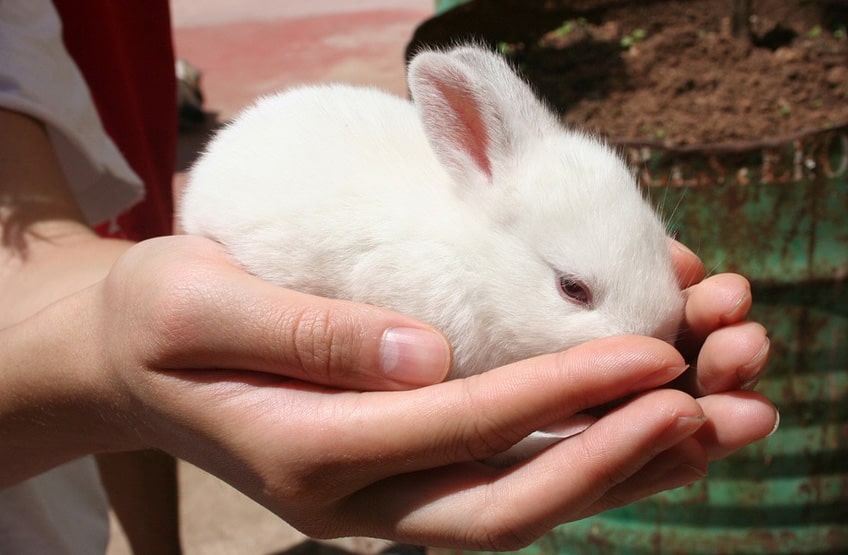
Baby Rabbits: A Comprehensive Guide to Care and Nurturing
Introduction
Baby rabbits, also known as kits, are adorable and delicate creatures that require specialized care to thrive. Understanding their unique needs and providing them with the proper environment and nutrition is crucial for their well-being and development. This comprehensive guide will provide you with all the essential information you need to ensure the health and happiness of your baby rabbits.
Housing and Environment
-
Cage: Baby rabbits should be housed in a spacious cage that provides ample room for movement and play. The cage should be made of wire mesh or a similar material that allows for proper ventilation.
-
Bedding: Provide a soft and absorbent bedding material such as hay, straw, or shredded paper. Avoid using materials that can be easily ingested, such as cotton balls or fabric.
-
Temperature: Baby rabbits are sensitive to temperature fluctuations. Maintain a consistent temperature of around 70-80°F (21-27°C) in their environment.
-
Humidity: The humidity level should be kept between 30-50%. Too much humidity can lead to respiratory problems, while too little can cause dry skin and dehydration.
-
Lighting: Provide a natural light cycle with 12 hours of light and 12 hours of darkness. Avoid exposing baby rabbits to direct sunlight, as it can be harmful to their eyes.
Nutrition
-
Mother’s Milk: The ideal food for baby rabbits is their mother’s milk. It provides all the essential nutrients they need for growth and development.
-
Formula: If the mother is unavailable or unable to nurse, you can feed baby rabbits a specialized formula designed for rabbits. Follow the manufacturer’s instructions carefully.
-
Feeding Schedule: Feed baby rabbits every 2-3 hours for the first few weeks of life. Gradually increase the interval between feedings as they grow older.
-
Water: Provide fresh water at all times. Baby rabbits may not drink much water, but it is essential for their hydration.
Health and Care
-
Handling: Handle baby rabbits gently and support their bodies fully. Avoid picking them up by their ears or legs.
-
Grooming: Brush baby rabbits regularly to remove loose fur and prevent matting. Use a soft brush or comb designed for rabbits.
-
Nail Trimming: Trim baby rabbits’ nails regularly to prevent them from becoming too long and sharp. Use sharp nail clippers designed for small animals.
-
Veterinary Care: Take baby rabbits to a veterinarian for regular checkups and vaccinations. This will help ensure their health and prevent any potential health issues.
Socialization and Play
-
Socialization: Baby rabbits are social animals and need to interact with other rabbits or humans. Provide them with opportunities to play and bond with their littermates or a trusted adult.
-
Toys: Offer baby rabbits a variety of toys to stimulate their minds and encourage physical activity. Toys can include chew toys, tunnels, and balls.
-
Exercise: Baby rabbits need regular exercise to stay healthy and happy. Provide them with a safe space where they can run, jump, and explore.
Common Health Issues
-
Diarrhea: Diarrhea is a common problem in baby rabbits. It can be caused by a variety of factors, including stress, diet changes, or infections.
-
Respiratory Infections: Baby rabbits are susceptible to respiratory infections, such as pneumonia and snuffles. Symptoms include sneezing, coughing, and difficulty breathing.
-
Malocclusion: Malocclusion occurs when the teeth do not align properly. This can lead to pain, difficulty eating, and other health problems.
-
Coccidiosis: Coccidiosis is a parasitic infection that can cause diarrhea, weight loss, and dehydration.
-
Abscesses: Abscesses are collections of pus that can occur anywhere on the body. They can be caused by injuries, infections, or foreign objects.
Conclusion
Caring for baby rabbits is a rewarding experience that requires patience, dedication, and a deep understanding of their unique needs. By providing them with a nurturing environment, proper nutrition, and attentive care, you can ensure their health, happiness, and well-being for years to come. Remember to consult with a veterinarian regularly for professional guidance and to address any health concerns promptly.
